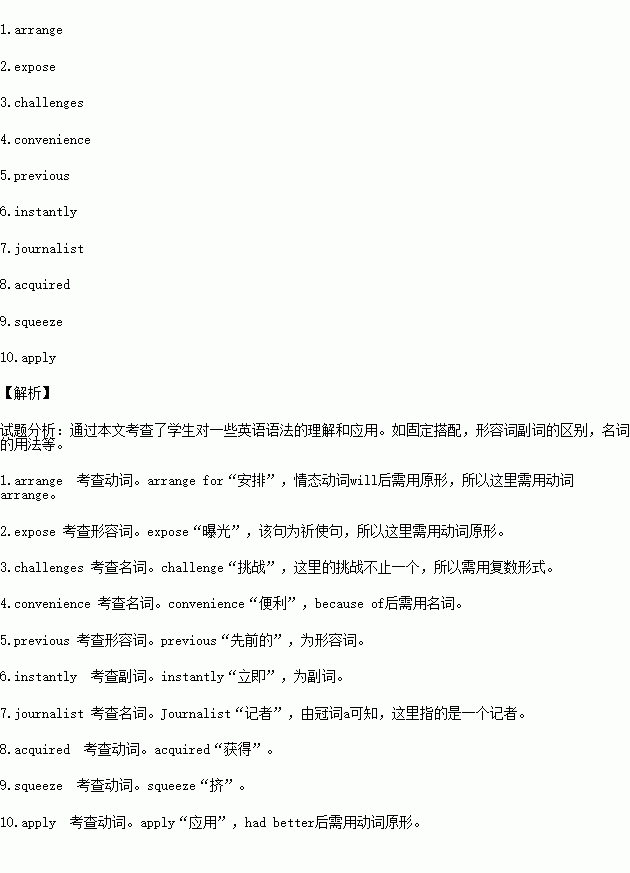题目内容
第一节 阅读下面句子,请根据中文意思的提示,在空白处填入所学单词的正确形式,使句子完整通顺。
1.The company will __________ (安排) for a taxi to meet you at the airport.
2.Don’t __________ (暴露) your skin to sunlight directly.
3.After Steve Job’s death, Apple is facing more __________ (挑战).
4.Ready meals sell well because of their __________(便利).
5.She has a teenage daughter from a __________ (先前的) marriage.
6.Do they have to wait for the information, or is it __________ (立即) available?
7.A good __________(记者) must have a good “nose” for a story.
8.Gradually she __________ (获得) experience in how to do the work.
9.He tried to __________(挤) himself on to the crowded bus.
10.You’d better __________(应用)some ointment to the cut.
练习册系列答案
 黄冈天天练口算题卡系列答案
黄冈天天练口算题卡系列答案
相关题目

